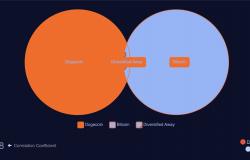according to the Bundesbank
Inflation will close this year at 2.8%
He Bundesbank This Friday, it lowered the growth of the economy in Germany for this year to 0.3%, one tenth less than in December, although it will step on the accelerator in subsequent years and will see improvements of 1.1% in 2025 and 1 .4% in 2026.
“The German economy is emerging from a period of weakness,” explained the president of the Bundesbank, Joachim Nagelin reference to the strong wage growth and decrease in inflation that benefits families and the stability of the labor market.
The German manufacturing production registered a drop in April for the second consecutive month, which predicts a weak start to the second quarter of the year.
Slowdown in Germany’s economy
However, despite current and past difficulties in Germany’s economy and the industry, the working market has held the rate and has been at 5.9% since December 2023. The Bundesbank has defined that the market is “tight”, a situation to which the demographic pyramid.
Employment is likely to continue growing “moderately” for now, although as the improvement in economic activity takes hold, hours worked are “likely” to be the first indicator to recover. In the meantime, it is possible that the unemployment rise “slightly” for a few more months, before slowly falling again at the end of the year.
Working market
Starting in 2025, the demographic evolution will limit the supply of labor, which will once again increase the rigidity of the labor market “considerably.” The body chaired by Nagel predicts that employment growth will gradually weaken as supply-side bottlenecks increase, coming to a halt in the course of 2026.
«This is because the slight decrease in unemployment in 2025 and 2026 will no longer open substantial scope for additional jobs. As the number of working hours per employee grows, economic recovery will increasingly rely on increased productivity,” the report prepared.
In any case, a gradual recovery of private consumption and an improvement in exports starting from the second semester. “In this context, the industry will also grow stronger again,” the central bank has indicated.
Inflation in Germany
Regarding inflation, the Bundesbank expects it to close this year at 2.8%, 2.7% in 2025 and 2.2% in 2026. For its part, the underlying variable, which excludes food and energy from its calculation due to its greater volatility, will slow down to 3.1% in 2023 and to 2.5% and 2.3% in the following two years. The disinflation process will continue to decline, although at a pace “moderate” given its “persistence”, especially in the service sector.







